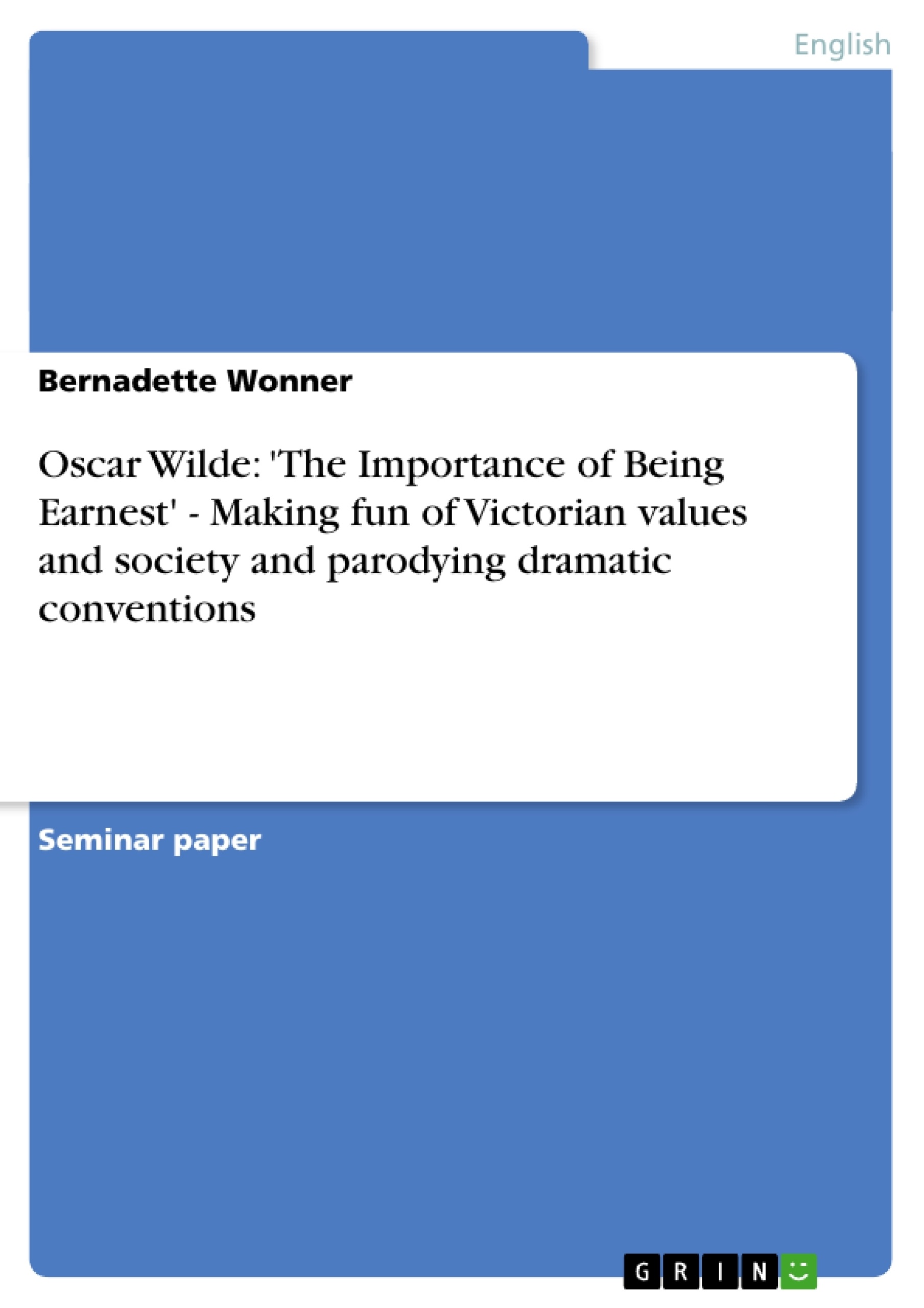Die Arbeit untersucht, inwieweit Oscar Wildes Stück die Werte des Viktorianischen Zeitalters satirisch beleuchtet und dabei auch mit den damals gängigen dramatischen Konventionen bricht.
Inhaltsverzeichnis (Table of Contents)
- INTRODUCTION
- PARODYING DRAMATIC CONVENTIONS
- MAKING FUN OF VICTORIAN MORES AND SOCIETY
- CONCLUSION
Zielsetzung und Themenschwerpunkte (Objectives and Key Themes)
This seminar paper provides a deeper interpretation of The Importance of Being Earnest, analyzing Wilde's intentions for writing the play. It examines how the play satirizes Victorian society and the dramatic conventions of the time. The analysis will explore the literary interpretation of the play, examining how Wilde parodies literary conventions of the period, and the socio-cultural interpretation, analyzing how Wilde makes fun of Victorian society and its morals.
- Parody of Dramatic Conventions
- Satire of Victorian Society
- The Importance of Identity and Appearance
- The Role of Love and Marriage
- The Power of Wit and Language
Zusammenfassung der Kapitel (Chapter Summaries)
- Introduction: This chapter introduces the play and its context, highlighting Wilde's intention to challenge Victorian values and conventions through satire. It also provides a brief biographical overview of Oscar Wilde.
- Parodying Dramatic Conventions: This chapter explores the dramatic conventions of the time, focusing on the genre of farce and how Wilde both utilizes and subverts these conventions in Earnest. It examines how the play's structure, characters, and themes deviate from traditional farcical elements, suggesting a deliberate act of parody.
- Making Fun of Victorian Mores and Society: This chapter analyzes the ways in which Wilde satirizes Victorian society and its morals through the characters and plot of the play. It examines topics such as the importance of social appearances, the complexities of gender roles, and the hypocrisy of Victorian values.
Schlüsselwörter (Keywords)
The key words and focus topics of the text include: Oscar Wilde, The Importance of Being Earnest, Victorian society, dramatic conventions, farce, parody, satire, identity, appearance, love, marriage, wit, language, social commentary, gender roles, hypocrisy.
Frequently Asked Questions
How does Oscar Wilde satirize Victorian society in "The Importance of Being Earnest"?
Wilde uses wit and language to mock Victorian morals, the obsession with social appearances, hypocrisy, and rigid gender roles.
What dramatic conventions does Wilde parody?
Wilde parodies the traditional genre of farce, subverting its typical structure and character tropes to create a deeper social commentary.
What is the significance of "identity" in the play?
Identity and appearance are central themes, as characters lead double lives to escape social constraints, highlighting the superficiality of Victorian values.
How is marriage portrayed in the play?
Marriage is depicted less as a romantic union and more as a social or economic transaction, subject to the approval of figures like Lady Bracknell.
Why is the play considered a satire of Victorian mores?
It exposes the gap between the characters' public "earnestness" and their private behavior, ridiculing the era's self-important attitude.
- Quote paper
- Bernadette Wonner (Author), 2003, Oscar Wilde: 'The Importance of Being Earnest' - Making fun of Victorian values and society and parodying dramatic conventions, Munich, GRIN Verlag, https://www.grin.com/document/20509



